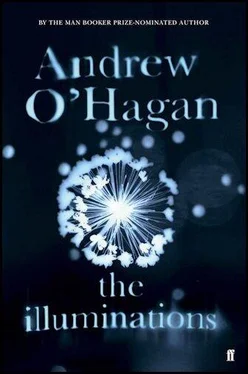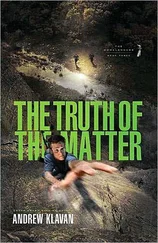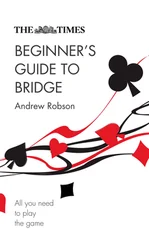Luke didn’t know what to say. He didn’t yet know how to talk about the visit to Selly Oak or how to share the details of his own flashbacks. When he came into Lochranza Court that afternoon he had been spooked right away by a Remembrance Day appeal box sitting in reception. And when he was telling Anne about the night he went out on the town, the night he drank too much, her voice rallied and she said what he’d heard older people say to boys with hangovers, ‘Hell mend you.’
‘What, Gran?’ He shivered. He’d thought she had said ‘
Helmand
you.’
‘I better go, Flange.’
‘You stayed so long, sir. Why did you stay so long in the army if you hated it that much?’
He wondered, as he often did, whether he should tell the truth or reach for something he half-believed. He had never really lived in a world where things could be said, but he said it now, in a lowered voice, as if posting an old letter he’d never got round to sending. ‘I kept thinking I’d meet my dad and we’d change the world.’ Luke wondered if Flannigan was just far too young to believe it, but it didn’t matter, he’d said what he’d said and the kid went on to something else.
‘It didn’t feel real, being in Afghan,’ he said. ‘It was so fucken hot all the time.’
‘I know it’s a loser thing to say,’ Luke said, ‘but I stopped believing in it, Flange. I was never like that in Iraq.’
‘Other people believe in it, sir. We just do our job.’
Luke paused to take that in. ‘I hope I haven’t embarrassed you, mate.’
‘Don’t be daft, sir.’
‘Okay. I’ll buzz you from Blackpool.’
‘Roger that,’ Flannigan said.
Luke was sitting on the wall looking at the plants when the two boys came up. ‘Is that the new iPhone?’ Scott asked. Luke’s phone was sitting beside him.
‘Yep. Top of the range.’
‘Aw, man. I want that, like,
so
badly.’ Luke knew they must be the grandsons of Anne’s nice friend Maureen. It was weird for him to think that they weren’t much younger than most of the guys in his section. The two boys spoke very easily: one of them said he wanted to be a DJ and the other said he’d study medicine if he could get in.
‘I’d never join the army,’ Jack said. ‘No offence.’
They spoke about phones and laptops and sounded very keen on cool things. ‘Wait here,’ Luke said, after a second’s hesitation. ‘Just wait here a minute. I’ll be right back.’ He went out to the car park, opened the boot and lifted out a black bag of stuff and brought it back to the boys. They opened it and gasped: two Xboxes, all the wires, handsets, mouthpieces, manuals, and a jumble of Nintendos and games.
‘Aw, man. Awesome!’ Jack said. The boys looked at each other with big smiles and Luke felt sure it was right to return it all to the realm of fun. They put their long arms into the bag and pulled things out and from the bottom Scott produced a paperback book, Kipling’s
Kim
.
‘This stuff is so cool.’
‘Don’t stay up all night,’ Luke said.
SHEILA
Anne woke and didn’t know where she was. All the houses had become one house and one time. She could have been downstairs as a child in Canada or was she inside the doll’s house, lighted with the bulb Daddy put there at Christmas? She felt for a moment she might be in the parlour in Hamilton waiting for the doctor, her mother bad with the shakes, and red leaves spinning in the yard. She blinked and heard a rumble under the boards.
Jane Street
She thought of the rugs she’d left in storage near Battery Park. A voice that came from the stairs made her think she must be in Glasgow, the big house, snow outside, Anne watching from the top window as the little girls in round hats made their way to school. She turned her head on the pillow and smiled to think of it. She pictured Blackpool, the darkroom at the top of the stairs. And she knew he would come. Harry would come and they’d put on a lamp and have a drink.
She sat on the edge of the bed. It was nice to have a place and a young man to help you take down a box. That’s right, she said: the boy Alice had and he’s now a leader of something. Luke. He wears the uniform and has to go out on night flights and what have you. He comes here and it takes an hour or two if the roads aren’t bad. And when she thought of bad roads and night-time all the stories drained away.
There was fog and snow over Germany.
You can forget you’re by the seaside. And good God: you have to keep your wits about you in these places, Saltcoats, Manhattan. You had to keep your chin up. She thought she heard the phone ringing and then Luke appeared in the doorway with a cup of tea. ‘Are we going to Blackpool?’ she asked as he put the cup down.
‘Yes, we are,’ he said. ‘First thing.’ Sometimes her old artistic sense would jump out at him, as if it had waited.
‘I hope you had a camera in that country you were in,’ she said ‘Because that’s a place for documentary.’
‘It was all too real,’ he said, ‘though we struggled to know it.’
‘You know fine well what’s real. Did you and me not argue all day and half the night about it?’
‘About what?’
‘You know fine well. If you want a good photograph stop messing about with models and start marching to a different tune.’
‘Lovely.’
‘That’s what we believe.’
‘Who’s “we”?’
‘Me and you and the rest of them.’
Later, in the other room, Luke lifted Anne’s address book and sat in an armchair by the window. It felt good in his hands. He was amazed by the thickness of the book, all the names and numbers, scribbled or crossed out with different pens. Postcards were stuffed between the pages, images of young women he’d never met, a snap of him as a cadet, and, filed under T, an old black-and-white photo of a small boy. There were people in the address book from other countries, many in England: he realised as he flipped through the book that these were his grandmother’s mystery people. Whole pages were crossed out and the word ‘DEAD’ was written in bold. His mother had told him to find the name Harry Blake and look for a Blackpool number. There were a lot of numbers for Harry, most of them with Manchester telephone codes, and though Harry was dead, none of his numbers was scored out.
‘Who is it?’ the voice said. He was speaking to a woman with a very thick Lancashire accent.
‘My name is Luke Campbell. You don’t know me. But I’m phoning on behalf of Mrs Anne Quirk.’
‘Say again, love.’
‘Anne Quirk. The photographer. She used to come a lot to the house, I believe. Not recently. From Glasgow. She looked after her aunts and would come for a break.’
‘Mrs Blake!’
Luke hesitated. He looked at the address book and saw Harry’s name again and took a breath. ‘Yes.’
‘Oh, Lord Jesus.
Mrs Blake!
’
‘I’m her grandson. I’m afraid she hasn’t been well. I was thinking of bringing her to Blackpool, to get her away for a week.’
‘I knew something was going to happen today.’
The lady was cheerful and Luke thought from her voice that she was probably middle-aged. ‘It’s been ever such a long time since Mrs Blake were down.’
‘Are you the landlady?’
‘I’m Sheila, chuck. It was my mother that ran the house when Mrs Blake was down a lot. Oh, darling. I’m talking the 1970s and the 1980s now. Happen it’s five years at least since we saw her. How is she?’
‘She’s not bad,’ he said. ‘She’s forgetful. But things are changing with her flat up here. I’m phoning from Scotland.’
‘From Glasgow?’
‘No, from Saltcoats. Down at the coast. She’s been living in a sheltered flat down here for years now.’
Читать дальше











